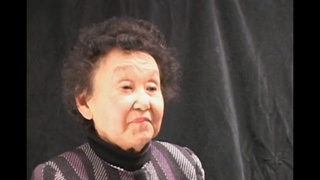Interviews
Stories of Grandfather at a concentration camp in Fusagasuga
Thankfully for us, they treated them well. There's a story that he was given something that he would…I don't remember exactly what they were given good that he would collect, and trade for booze, because he wanted to have some drink, and they weren't allowed to have all those things. So he collected, and traded them. Maybe they had some limited outings, or something.
And there's also a thing that he says that if they were well behaved, they took them out for field trips. So he had gone to a park, or something that he had been impressed by the beauty of the place that they had visited.
And there's also stories that my grandmother had written in Japanese to my grandfather saying, like prearranging that, there were like a lot of faked illnesses in my family, and they would write the notes in Spanish. So the guards would understand that they were telling him that my mom, for example, my mom was very, very sick that what should we do or whatever, so they allowed him time off, and gave him permission to come visit. And he would visit for 15 days, and go back. So they were, I guess every so often, they would fake some illness, or some major event, only so he would be allowed to come visit them.
Date: September 22, 2019
Location: California, US
Interviewer: Yoko Nishimura
Contributed by: Watase Media Arts Center, Japanese American National Museum








